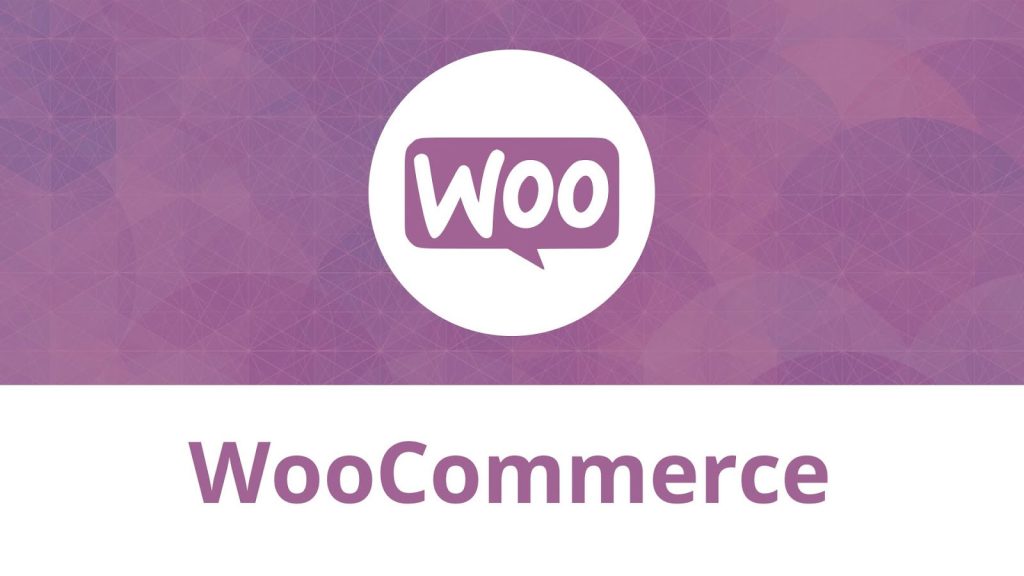Hosting services with real-time fast performance?

Compare: WooCommerce vs Magento vs Shopify
Website building has become far easier with the development platforms being launched in time after the website becomes crucial for businesses. However, the availability of many powerful yet successful platforms for Ecommerce Website Development really has puzzled the website owners. Certainly, each platform has got wonderful features to erect an eCommerce store, so they are more of a competitor to each other. So determining which one to go with is very hard to deal with. So let’s check out which platform has got the triumph via a detailed WooCommerce vs Magento vs Shopify comparison.
WooCommerce vs Magento vs Shopify
WooCommerce
WooCommerce is a plugin that first came to life in 2011 and got associated with Automattic in 2015, and became popular as the official WordPress eCommerce plugin. It is an open-source and freebie WordPress plugin that means it is available for anyone to use. The reasons that trigger its popularity as the best eCommerce website builder are big-time.
Ease of use: For instance, first of all, is its ease of use makes it beginner-friendly too, especially the users with little to no eCommerce experience. The admin dashboard is pretty easy to navigate.

Features: It has a built-in blogging feature and the best tools for content publishing. In addition, it has various payment gateways as payment processors like Stripe or PayPal to enhance the usability of the e-shop for the users. In addition, product listing, bulk email, store inventories, and multiple tools are available.
Customization: WooCommerce indeed is the king of customizations. You can turn any of them into a personalized online experience catering to your business at best. Be it the design, media insertion, or store functionality; every aspect can be fully customized.
Nevertheless, bear in mind, if you are more into customizations and third-party tools, basic knowledge isn’t going to work anymore. WooCommerce particularly turns into a challenging maneuver because, often, customizations call for coding expertise, so you might have to outsource a professional WooCommerce Website Development Company.
Themes: WooCommerce offers a sea of customizable themes. WordPress.org and ThemeForest can be your way to go to find a theme matching your needs. Fortunately, you can optimize them using either a graphic editor or via custom coding (e.g., CSS, HTML, PHP)
Site Loading Speed: However, the WooCommerce websites are relatively slow in loading, mostly because of the plugins and extensions. Therefore, WooCommerce stores have to undergo WooCommerce Optimization to have skyrocketed performance.
Hosting Availability: Although Hosting is a necessity for every online store, however, WooCommerce doesn’t offer hosting services. Instead, the users have to buy the Hosting from a web hosting company on their own accord.
SEO: Another reason for WooCommerce popularity is its built-in SEO features and effective assistance in content marketing. It has SEO-optimized code at its backend alongside extensive tools to optimize your content and pages. In addition, you can use additional SEO plugins to get result-driven SEO.
Analytics: Analytics is currently an integral approach for the site’s fantastic performance, so WooCommerce has a new update related to WooCommerce Analytics. Users can combine it with Google Analytics.
Security: WooCommerce security undoubtedly is the best unless third-party resources/ extensions engender safety troubles.
Extensions: Approximately 520 Official WooCommerce plugin extensions are present currently, for instance, for product add-ons, coupons, appointment booking, subscriptions, etc. While some extensions are premium, varying in pricing type one-time or monthly.
Pricing: WooCommerce is free for everyone to use. However, the plugins and extensions to enhance its functionality and the dream of a perfect e-shop made its pricing nearly equal to other eCommerce platforms.
Popular brands using this platform: Blue Star Coffee, Wakami, Singer, AirStream
Magento
Magento entered the web arena in early 2007, and after various ownerships, it finally got owned by Adobe Inc. in May 2018. It is an open-source platform that is called Community Edition. Nevertheless, it also has premium packages under the label Enterprise and Enterprise Cloud to cater to mid-market and large enterprises. Despite being difficult to handle, Magento is rising as one of the most usable eCommerce platforms following its features and site-scale handling. Currently, Magento 2 (the updated version of Magento, in 2015) is powering the latest development practices.
Ease of use: Magento isn’t yielding to non-geeks and beginners. In fact, only long-run experienced developers and tech experts can control it because of its core being associated with PHP, cloud, HTML, and is suitable for custom solutions.
Features: It has a splendid product-oriented features list in both built-in and additional categories. For example, the list extends to product bundles, store Management via one admin panel, unlimited product attributes, one-page checkout, URL rewriting, International Support, payments PayPal/ Authorize.Net native gateways, etc. Still, some aren’t available and need extensions to integrate them, for instance, blogging.
Themes: Magento has around 100 customizable themes for different niches, both free and paid (up to and more than $200). If affordable, users can buy their favorite Magento themes from third parties e-markets.
Customization: Users are free to full customization, and extensions are at your services to ensure unique customizations. As we already said, Magento is pretty complex. So for customizations, website owners have to look up to skilled developers even for themes customizations and extensions installation too.
Site loading speed: Magento has steady site loading performance and can handle high volume traffic easily. But it also can have some speed issues, and you can optimize it.
Hosting Availability: When using the open-source edition, one has to buy Magento Hosting by selecting the aptest Magento hosting provider. In contrast, Magento’s own managed hosting cloud solution is available via the premium package only at around $2000.
SEO: Magento also has powerful built-in SEO features that let you modify all UX, links, titles, and tags, heading, and URLs. So maintaining and ensuring the higher ranks is far easier.
Analytics: Magento Business Analytics is Magento’s built-in analytics platform to keep an eye on the website working. Also, users can couple it with Google Analytics too.
Security: The native security measures are adequate to protect the Magento store. Besides, it frequently releases dedicated security patches.
Extensions: It has around 6,000 extensions as freebies and paid to enhance the functionality concerning the content, payment, sale, etc. However, bear in mind that these extensions are not expensive but also difficult to integrate, calling for developers’ assistance.
Popular brands using this platform: Nike, Canon, Coca Cola, Jaguar
Pricing: Obviously, the open-source edition is free, but you have to pay for enterprise versions. Enterprise commerce costs start at $22,000/ year, while enterprise commerce Cloud costs start from $40,000/year.
Shopify
One of the best all-in-one eCommerce website development solutions is Shopify, founded in 2004. It is a closed-source platform (commercial) users pay to enable it. It is a cloud network capable of hosting and developing small to mid-size and enterprise websites. As Shopify’s is more of a ready-made solution, so its restrictions in terms of Hosting and customizations are no secret.
Ease of use: Beginners or non-geeks with no coding knowledge can conveniently use it (drag-and-drop feature) to start an online store.
Features: A galore of features that an e-store can ever need. It supports 70+ payment gateways, and from detailed Shopify admin, product inventory, shipping calculation, buyers’ profiles, abandoned cart recovery, promotions to blogging, you can find all.
Themes: A mass of free and premium themes is available via Shopify Theme Store.
Customization: The customization potential of Shopify is somehow compared to other platforms. Although themes and design personalization is easy, the overall store customizations and scalability are often challenging.
Site loading speed: Shopify websites have the best website speed regardless of heavy media. Besides, in case the site gets lazy, optimization approaches are here to back it up.
Hosting Availability: Shopify comes with default hosting solutions which, on the one hand, is perfect and, on the other hand, limits your desired hosting choice as you definitely have to choose only from the given plans.
SEO: Shopify SEO native features are top tier concerning meta, URL, tags, etc. Additional features alongside the SEO tips-fueled information is at the users’ disposal in the store.
Analytics: Similar to other e-platforms here in comparison, Shopify offers its own Analytics Platform alongside the integration with Google Analytics. So sales and traffic tracking and user journey are easy to manage.
Security: Shopify considering the safety significance, ensures online store safety with various approaches like TSL protocol, SSL Certificates, and more.
Extensions: It has extensions, apps, and plugins to be saved and implemented for automation and website daily working. Around 1500 out of 4000 plugins available in the store are free.
Popular brands using this platform: KKW Beauty, Fitbit, Penguin Books, Hyatt Hotels Corp
Pricing: Shopify isn’t free. Four plans include Entry-level plan Basic comes at $29 per month, and intermediary Shopify plan starts from $79 per month. Similarly, the Advanced Shopify plan comes at $299/ per month, and Shopify Plus starts at around $2,000 per month.
Interestingly, you can have a 14-day free trial to decide whether to walk with this platform or not. In addition, if the user uses a non-built-in payment processor, Shopify charges extra charges varying from 2% to 0.5% following the plan.
Before moving on to the final comparison, let’s break WooCommerce vs Magento vs Shopify comparison in duplet.
WooCommerce vs Shopify
This comparison is mostly more awaited than others as both platforms have a close market contribution.
- WooCommerce has more Powerful SEO functionality than Shopify
- WooCommerce has more readily available plugins/ add-ons alongside high flexibility and customization options
- Shopify wins the cost battle with all-in-one pricing
- WooCommerce lags somehow in the required coding expertise
WooCommerce vs Magento
Although both pertain to different brackets, Magento being the rising star and WooCommerce being the former gold still with a firm grip causes this comparison.
- WooCommerce is far more user friendly than Magento
- WooCommerce has low pricing as compared to Magento
- Magento is suitable for giant businesses, while WooCommerce is effective for small to mid-size business
- Magento wins the viable custom solutions and development ideally.
Shopify vs Magento
Despite being eCommerce platforms, both have a pretty significant class difference.
- Shopify has perfectly cost-effective pricing, unlike Magento skyrocketing prices in premium plans
- Shopify best suits beginners, while Magento is sometimes hard to deal with, even for skilled developers.
- Magento has high flexibility and scalability curve than Shopify
- Magento has more simple to advanced features built-in features than Shopify that needs apps and extensions.
| Features | WooCommerce | Magento | Shopify |
| Platform type | Plugin | eCommerce platform + advanced development | eCommerce platform |
| Sites/e-stores using this platform | 26% | ~9% | 21% |
| Ease of Use | Friendly yet at times require coding expertise | Less user-friendly than WooCommerce/ Shopify | No coding expertise required |
| Flexibility/ Scalability | High | High | low |
| Default Hosting Services | × | × | ok Managed |
| Site Loading | Slow | Intermediate | High |
| Security | Low | High | High |
| SEO & Analytics | ok | ok | ok |
| Pricing | Open-source | Open-source + Premium | Commercial + Hosted |
| Customer Support | Via forums | In premium only | 24/7 |
| Popular brands using this platform |
Blue Star Coffee, Wakami, Singer, AirStream
| Nike, Canon, Coca Cola, Jaguar | KKW Beauty, Fitbit, Penguin Books, Hyatt Hotels Corp |
Conclusion!
With individuals ready to spend a mass of money online during shopping for their desired products and services, businesses have been riveted to have online stores. To build an eCommerce store, however, choosing one from the vast options of eCommerce website development platforms isn’t easy.
Shopify can cater to small to medium-sized e-stores, and WooCommerce works best for small e-stores, while Magento is suitable for huge and resource-intensive stores. However, WooCommerce is far more popular than others and has the highest usage ratio.
Frankly speaking, the choice of platform depends on, first of all, the website requirements, secondly the scale, and lastly, the budget. So if all these aspects don’t really matter in your case, WooCommerce vs Magento vs Shopify comparison can help you choose the best eCommerce platforms for you according to the features preferences.













